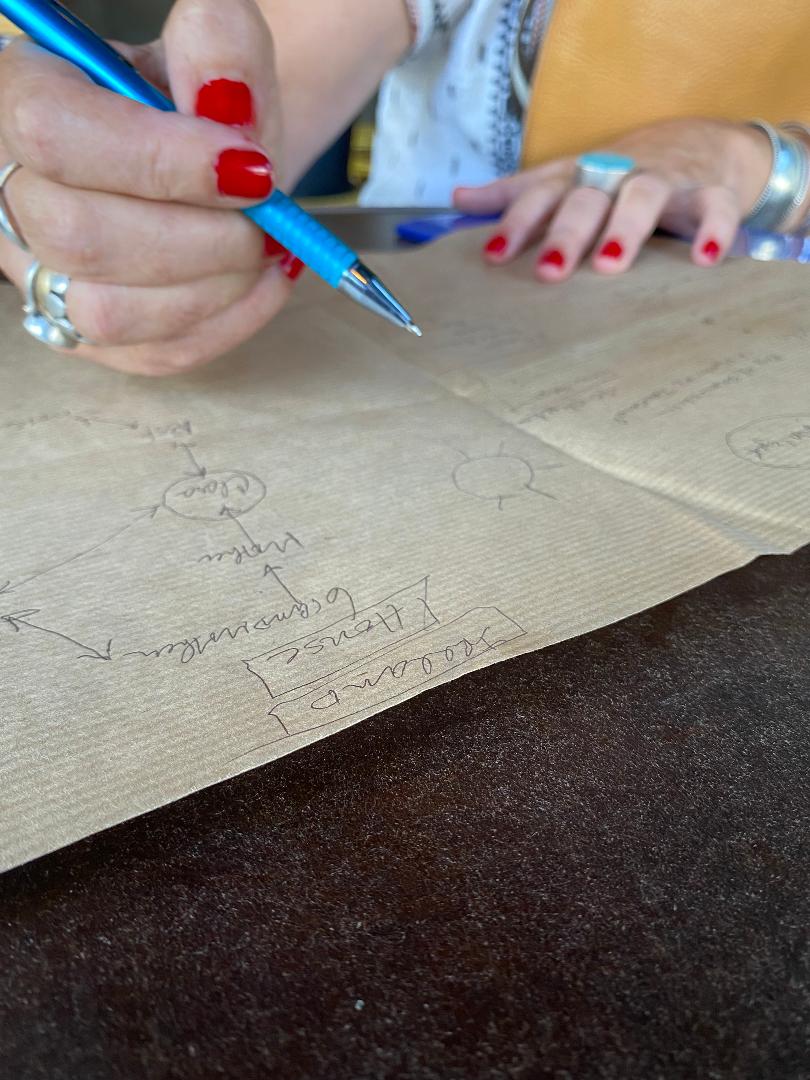March 7, 2023
Just Write, Tip 6 of 7
by Annie McCormick
 Odd that writing is the 6th of the 7 things you should do in pursuit of your dream to be an agented writer. #CliffHanger
Odd that writing is the 6th of the 7 things you should do in pursuit of your dream to be an agented writer. #CliffHanger
At some point, sooner rather than later, you have to sit down and do it. Ideally, you’ve put a few plans in place with respect to finances, your schedule, networking, and professional development, and have done a bit of soul-searching.
You’ve done all you can do to position yourself for this. You’ve kept your eye on the prize and started to reorganize your world as needed, to support this new path.
So, go write.
Don’t let obstacles become excuses. Your finances will never be perfect. Your schedule will be disrupted by car trouble on a random Wednesday, and the class you signed up for isn’t what you needed… that’s life. And it can’t get in your way.
When you’re 90 and someone says “whatever happened to that book you wanted to write?” The answer cannot be, “I needed new tires one day back in 2023. And they were expensive.”
Sit down open your laptop and tell the story you have always wanted to tell. And know that it will be written and rewritten and edited beyond recognition before it ever sees the light of day.
Do not let perfect stand in the way of starting this.
Do you remember when I started this blog series? As a part of my introduction, Samantha Hoffman introduced me as someone who had written a manuscript and while she hadn’t read it, odds are she thought it probably wasn’t very good. And she was (mostly) right.
Very rarely does anyone hit it out of the park on the first pitch. In any field. Ever.
Sit down, focus, trust the process, and write.
As with any new job, you will doubt yourself. You will forget the basics and likely feel overwhelmed at times. You will most certainly wonder if you can do this or if it is too late to turn around and go back to your old life.
You know those feelings. You’ve had them on the first day of any new job. And this is a new job. This is the equivalent of going back to school. You are a newbie. You are going to get lost. You will get stuff wrong.
But persevere. Sit down and write for the time you have blocked in your schedule.
A blank screen can be daunting. You will need a place to start. I would suggest you read Lara Willard’s 8 C’s of Plotting. You will get a twofer here. The blog itself is well worth the read; good advice, accessible content, etc. She’s terrific. In addition she also provides a framework for a well-written piece. Where is the conflict, where is the crisis? What changes and why? etc. By all means bring your own talent and voice to this framework, but know that it is a well-established, highly respected, framework for crafting a story. It gives you a starting point for thinking, a list of the critical elements, and direction on pacing.
You are not going to reinvent the industry of writing on day one. Use a trusted source as a starting point. You don’t know what you don’t know.
That first manuscript I mentioned had great timing, a natural voice, solid humor, and was so relatable…. but the infrastructure was missing. It was like a beautifully decorated cake that collapsed into a million crumbs when you sliced it.
If you have a passion for writing and have rearranged your life to make this a priority, you have some natural talent. You can’t teach talent. Lean into that and don’t lose sight of it. It’s the technical elements of any job that must be learned and mastered. Tax codes, Excel commands, lesson planning, the 5 mother sauces, wax on wax off. The nuts and bolts of any industry can be taught. It’s the talent you bring to it that will set you apart.
Read Lara Willard’s piece, embrace what you don’t know, and master it. You need a solid foundation on which to build a house, or the house won’t stand.
I spent this summer in France with Lara’s framework. It was a gamechanger for me. I spent my mornings sipping espresso and drawing it on placemats in endless cafés to map out the new manuscript. It got to a point where we only ate at places with placemats. Restaurants with wooden top tables or linen cloths were to be avoided. For me, it was so helpful to create a framework, a visual map. It helped me to easily identify and then the fill in blanks. It was a key to moving ideas around and getting the priorities in place from the start. I could quickly determine if X happens here how does it set up Y? I was able to spot loose ends. Or my personal challenge: clearly seeing the places where I have spent too much time telling a great story or describing a fun character and then realize that person or that moment isn’t relevant.
And here’s the thing. Every word must be relevant. Every one.
That’s my process and it took a time or two to find out what fueled me and what was a pain in the neck. Now I live by it.
Open the laptop, sit in your spot, print out the graphic in Lara’s piece, and write.
While you're doing that I’ll be in a coffee shop working on the next 10,000 words. As long as the coffee shop has placemats (I have been known to bring my own).

Often referred to as the Queen of BS (Brand Strategy) Annie McCormick has a distinguished career, spanning nearly three decades, setting brand strategy for organizations big and small. She is a dynamic, strategic, nonprofit executive and storyteller with extensive experience setting strategy to advance the mission of the institution and engage key strategic partners. She currently reigns as the Queen of BS for Tall Poppy Writers.
She aspires to write novels that will make you laugh, go with you everywhere and be featured in your social media feed with glasses of wine and good chocolate.
Affiliates/Partners
Testimonials
Contact
Join CWA
Member Directory
My Account
Writers Conference
Presenters
Agents and Publishers
Pitch Sessions
Sponsors
Scholarships
Speaker Registration
Book of the Year
Spirit Award
First Chapter Contest
Resources
Home
Chicago Writers Association
info@chicagowrites.org
Make a Difference!

